The Hero: The story of an extraordinary man (Mass.)
Oct 16, 2013
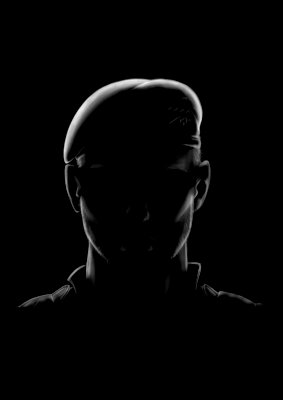
.
—Curt Devlin, Guest Editor
Barry Funfar wants to live an ordinary life in a small Garden of Eden he created in his backyard in Falmouth, MA. He earned this respite in ways few of us can imagine.
Barry spent nineteen months in the hell on earth called the Vietnam War. He won’t tell you this, at least not easily. Perhaps he needs to leave this part of his life behind; but one look into the haunted blue eyes of this tall, soft-spoken soldier tells you that his past follows him like a scent. Nineteen months as an avionics technician in the Marine Air Wing of the United States Marine Corps—right off the farm in North Dakota.
A teenager used to baling hay, suddenly on the other side of the earth in a firefight.
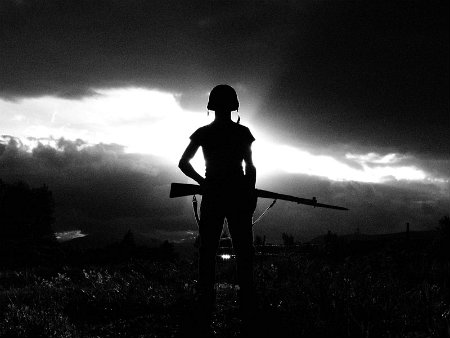
Posted to a base under relentless rocket and mortar attack and feeling like a proverbial sitting duck, Funfar started looking for a way to hit back. He began volunteering as a door gunner.
Remember the scene in the Civil War movie, “Dances with Wolves,” where Lieutenant Dunbar leaps on the back of a horse and—to his comrades’ horror—rides it back and forth in front of the enemy lines—the enemy troops who are furiously trying to gun down this seeming madman? The Union general, surveying the scene through his field telescope, remarks to his incredulous aide: “Looks like a suicide!”

Funfar did a “Dunbar”—standing in the open doorway of a hovering Huey, behind an M60 machine gun. Funfar volunteered for 127 missions like this—preferable, he thought, to suffering through day after night of deafening, terrifying enemy barrages.
“Looks like a suicide mission”—though he survived. Many others didn’t. Their names are included among the 58,000 other names on the Wall.
He survived, but didn’t come home unscathed. Sgt. Funfar was gravely wounded in ways invisible to the untrained eye. For decades he struggled with sleeplessness and mood swings, sudden fits of anger followed by deep depression, despair, and sporadic bouts with alcohol—the festering wound now called PTSD (Post-Traumatic Stress Disorder).
Much has been learned about how to diagnose and treat this illness because of Vietnam, but help was slow in coming for many victims like Barry.

He was not properly diagnosed until 2003, more than thirty years after the war ended. Like rehabilitation for a serious physical injury, the healing process for PTSD is slow, requiring tremendous effort and determination by everyone involved. Setbacks are common and, often, the residual effects must be managed for a lifetime. In Barry’s case, one of the most vital elements of his therapy was his gardening; it was medicine for the soul.
Perhaps, the seasonal rhythms of gardening in New England helped him reestablish a healthy rhythm in his own life. The hard work and hope of spring renewal, the joys of summer flourishing, the riot of fall color ending in the quiet solace and closure of winter snow. Or, maybe gardening was just a healthy distraction that kept a man’s mind and body preoccupied with the task at hand, rather than drifting into the troubling corners of the past—the hell’s mouth of a helicopter gunship.
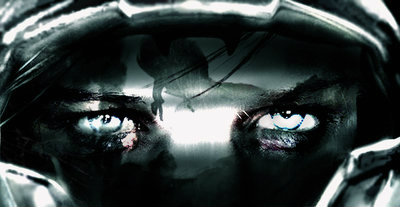
Whatever his garden was for him, he needed it like a diabetic needs insulin. He was getting better. He was enjoying life again. His family was enjoying him again.
All this came to an abrupt end when two huge wind turbines were erected nearby—right in town. The sound that the turbines emit by day makes being outdoors unbearable for him now. It drove Barry from his beloved secret garden, which soon fell into neglect, standing as a painful reminder of how good life could be.
His mental and physical health have spiraled downward since the turbines started spinning. His chest vibrates constantly when they’re running. His cardiologist says he has developed coronary artery disease. As the weeds creep back into the garden, the tendrils of gloom, depression, and thoughts of suicide creep back into life.
To fight the demons of war, he and Diane take long trips to escape the prison—of their home.
Recently, I sat in the audience and listened while Barry and Diane pressed their “private nuisance” complaint to the Falmouth Zoning Board of Appeals (ZBA). They described the relentless onslaught of mind-numbing noise that deprives them of the peaceful enjoyment of their home, their property value, and their precious family life.
Barry supplied the ZBA with thirty-two pounds of documentation, an accumulation of correspondence with other officials, records documenting his declining health, and detailing the impact he has suffered in the past four years. Even so, his complaint seemed doomed before he spoke a word. If the ZBA were to recognize Barry’s complaint as valid, the only reasonable solution would be to shut the turbines down during the day—but the town Select Board has already decided to shut them down only at night.
In military terms, it’s a SNAFU.
When the Town Attorney, Frank Duffy, rose to speak on behalf of the town, he delivered the psychic coup de grace. Duffy argued that the board must reject Barry’s complaint on the grounds that the town bylaw defines a nuisance as something that would bother an ordinary person—and Mr. Funfar clearly was not an ordinary person. His honesty and his PTSD were being used against him.
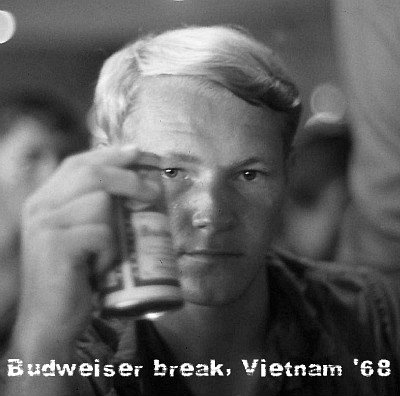
Sgt. Barry Funfar, US Marine Corps
Having put his life on the line for his country, having quietly suffered the debilitating consequences for decades without treatment, having lived in Falmouth as a good citizen and good neighbor for over 34 years—the town was now depriving this extraordinary man of the simple consideration and justice due to any ordinary man.
The English literary scholar and Oxford don, C.S. Lewis, reflecting on the recently ended World War, coined the phrase “men without chests.” Meaning, men lacking the honor, courage, and moral backbone necessary to recognize these same virtues in others. Soulless men who lack the organ of humanity necessary to accord the proper esteem and consideration that people like Barry Funfar rightfully deserve.
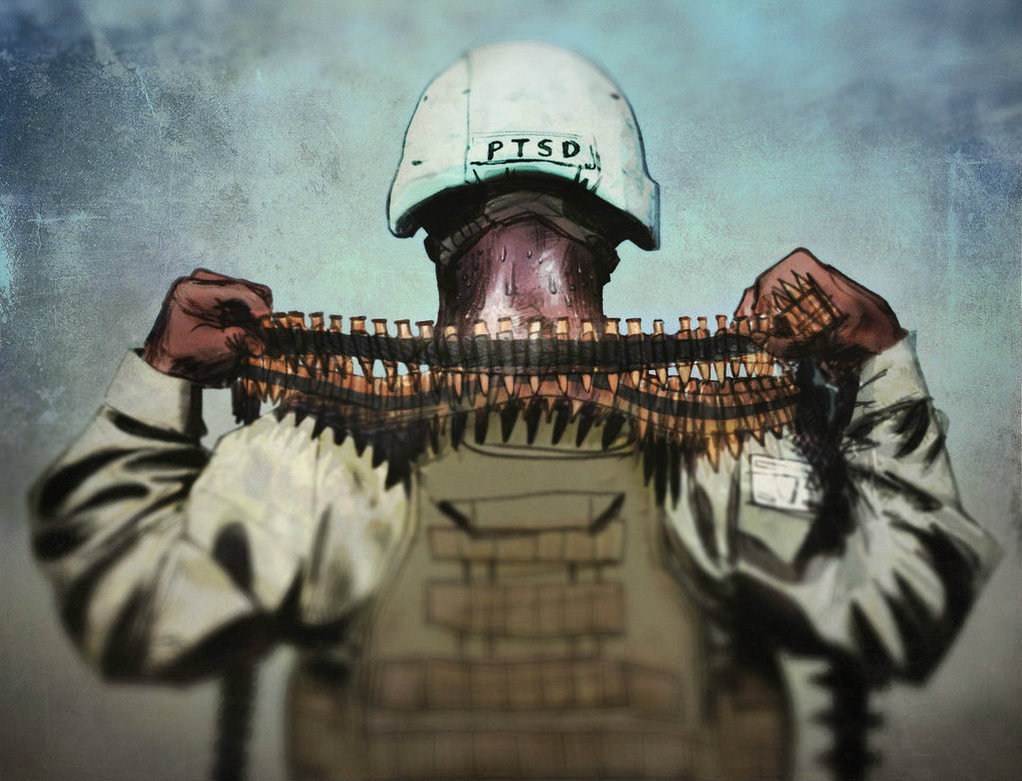
Understand, this is not justice or the rule of law being applied to this man. This is lesser men using cunning legal technicalities to exert a tyranny of the majority over a few good men to justify their own selfish greed for money, power, and status. This twisted reasoning is a moral obscenity and grotesque injustice, masquerading as democratic process. Its ilk is not limited to Falmouth, MA.
Lewis went on to warn that “the power of man to make himself what he pleases, means, as we have seen, the power of some men to make other men what they please.” Though such men don’t regard their power as such, it is nothing less than the malignant seed of fascism taking root in America—the triumph of the spiritually bankrupt over a few extraordinary men with chests, polished by valor.
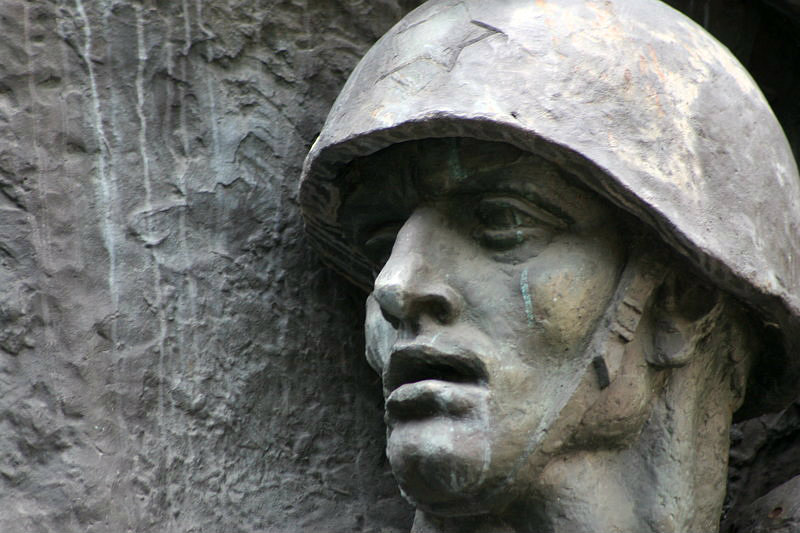

Comment by sue hobart on 10/17/2013 at 7:45 am
Well written Curt … and not a bit overstated. Barry has become very dear to me in this struggle in Falmouth. I thank God he has his wonderful wife and grandsons to live for. He is a truly wonderful man and deserves so much more than this.
Falmouth as a town has been truly horrific to its turbine victims. Unfortunately they will get away with it because by the time the lawsuits get settled we will all be gone or so broken it will no longer matter.
I left my former home because of one of these turbines. Barry is gone from his castle most of the time. Another stands his ground and takes the beatings. Others drink more and pretend everything is ok. Nothing will ever be the same.
All have lost something irreplaceable … a healthy life peacefully lived in a town worth caring for.
Comment by Melodie Burkett on 10/17/2013 at 8:38 am
So utterly sad. How have we ever allowed ourselves to degenerate into the abyss of tyranny.
But then, a few good men & women … perhaps.
Comment by Gina Webber on 11/10/2013 at 9:43 am
I have always been firmly set in my concerns about wind turbines and their negative impact on humans, animals, and marine life. How can something that creates constant vibration not disturb the bodies and minds of anything living near it? How is it that there is little or no concern for the quality of life of those living near these monstrosities? It matters not if the individuals living near the wind turbines are ordinary or extraordinary; they, like all of us, have the right to live in peace upon the land they have worked and fought so hard to attain!
Until this morning I was unaware that I was acquainted with any of the Falmouth wind turbine victims. Thank you for writing this story about Mr. Funfar. I have known him for years through his daughter and grandsons. He is an extraordinary man and I am incredibly saddened to know that he is a victim of the Falmouth wind turbines!
God bless you for writing this article. I hope that it educates people on effects of wind turbines and gives society pause before allowing even more wind turbines to be erected where they can do harm.